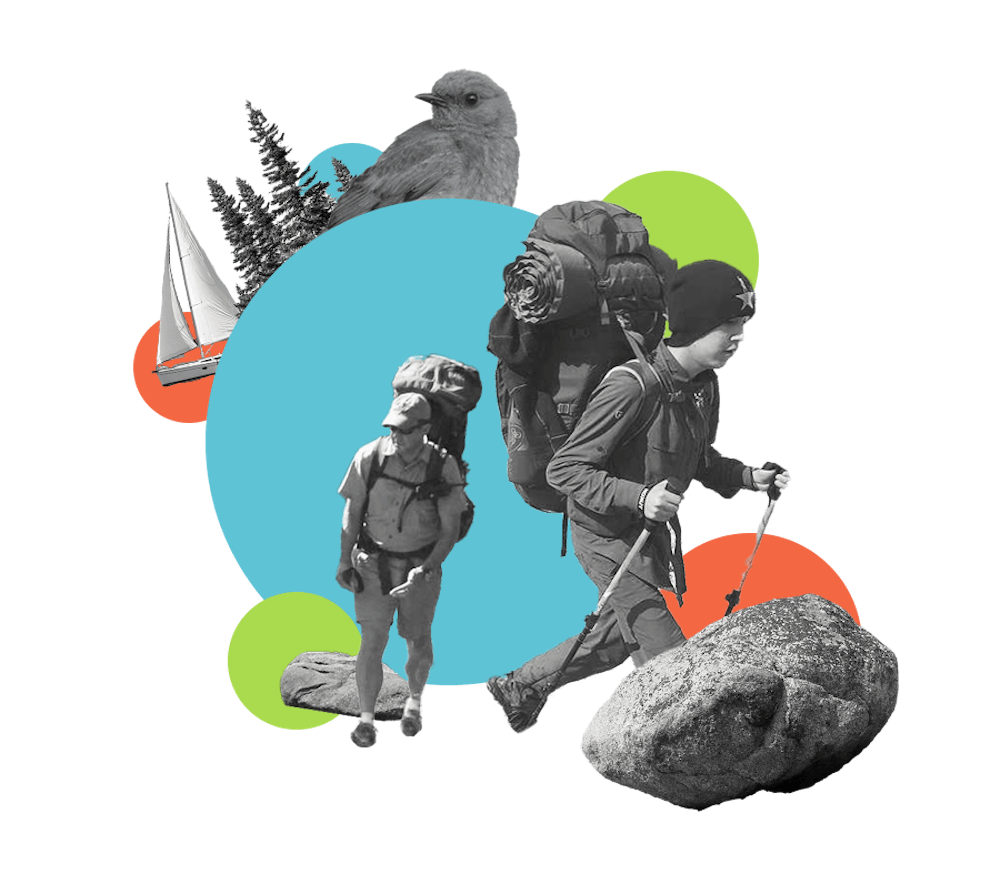The leaders at the AS Outdoor Center do more than just get students to enjoy the outdoors, they strive to emphasize environmental safety and responsibility while building lasting communities for students all across Western’s campus.
“What the Outdoor Center tries to do is make the experience about community and about fun and safety,” said Ruthie Yawney, a fourth-year Western student and team leader at the Outdoor Center. “Bringing people together in the outdoors [puts] a lot of the emphasis more on community building than anything else.”
Trips are pitched by team leaders and can range from excursions like multi-day backpacking trips to something simple, such as a walk through the Sehome Arboretum. The trip levels range from beginner, intermediate and advanced, and are usually free or low cost to be as accessible as possible.
“One of the biggest limiting factors in outdoor sports and outdoor recreation in general is financial limitations,” Yawney said. “Having [it be] low cost or free, makes it a lot more accessible for a wider range of people, especially people who are in college and are probably working with limited funds.”
Alex Chin, a first-year at Western, participated in a snowshoe excursion, which was something he’d never done before. He explained how the excursion’s low cost allowed him to try it out.
“I was like, ‘OK, cool, there's a way to do this through the school that’s pretty cheap. It takes care of everything for me, so I might as well try it out and see if I like it,’" Chin said. "Turns out I really do like snowshoeing and I'm planning on doing it again, on my own or with friends next winter.”
Along with accessibility, environmental safety and responsibility are also prioritized by the Outdoor Center. According to Noa Simon, one of the excursion coordinators, team leaders are knowledgeable about their surroundings and the environment, and enjoy sharing their knowledge with participants.
Yawney noted there is always a level of risk involved when you’re out in nature. Before trips occur, trip leaders hold pre-trip meetings where a rundown of weather, group expectations, gear that will be used, things that would be seen and people's hopes and fears for the activity is given to gauge where people are at.
According to Rob Jones, an Associate Director for Adventure and Sports at the University of Utah, trip leaders through their Outdoor Adventures program go through a training curriculum that emphasizes leaving no trace, and includes wilderness first aid and CPR training.
“That's just baked into who we are and what we do,” Jones said. “We know that we are introducing more and more people to our wilderness places, and if we're going to do that, it's our responsibility to make sure they have the knowledge and, hopefully then, develop the passion and the desire to protect these places.”
Jones noted how, over his 40 years of experience, students who have had a passion for the outdoors tend to develop the skill sets, the knowledge and the desire to protect the outdoors while also applying environmental ethics into their everyday lives.
“They come back and they go, ‘You know, if we change the process that we're doing with these rentals, we can save paper,’” Jones said. “They're able to translate some of those wilderness ethics into their daily lives, and it just helps them be better citizens.”
Jones has come to appreciate the relationships that are built through spending time together outdoors.
“Looking back at my career,” Jones said, “the relationships that I've built with students that have come through and that I've helped teach and mentor, 30 years later, they have kids now, and I'm seeing them build their families with this outdoor ethic, sharing their passion with their kids, and it's just been nice to see that cycle continue.”
Bodey Mitchell (he/him) is a campus life reporter for The Front this quarter. He is a second-year Journalism pre-major. In his spare time, Bodey can be found snowboarding or playing guitar. You can reach him at bodeymitchell.thefront@gmail.com.






